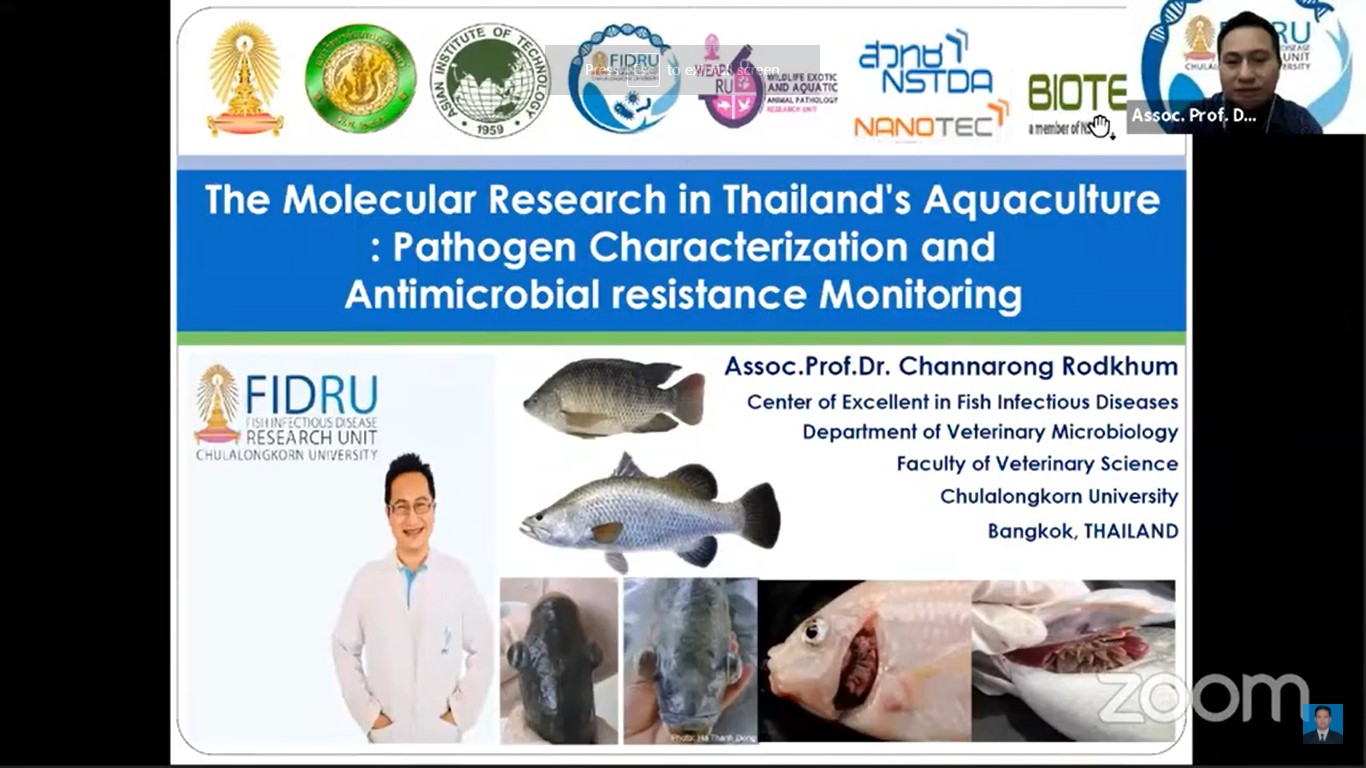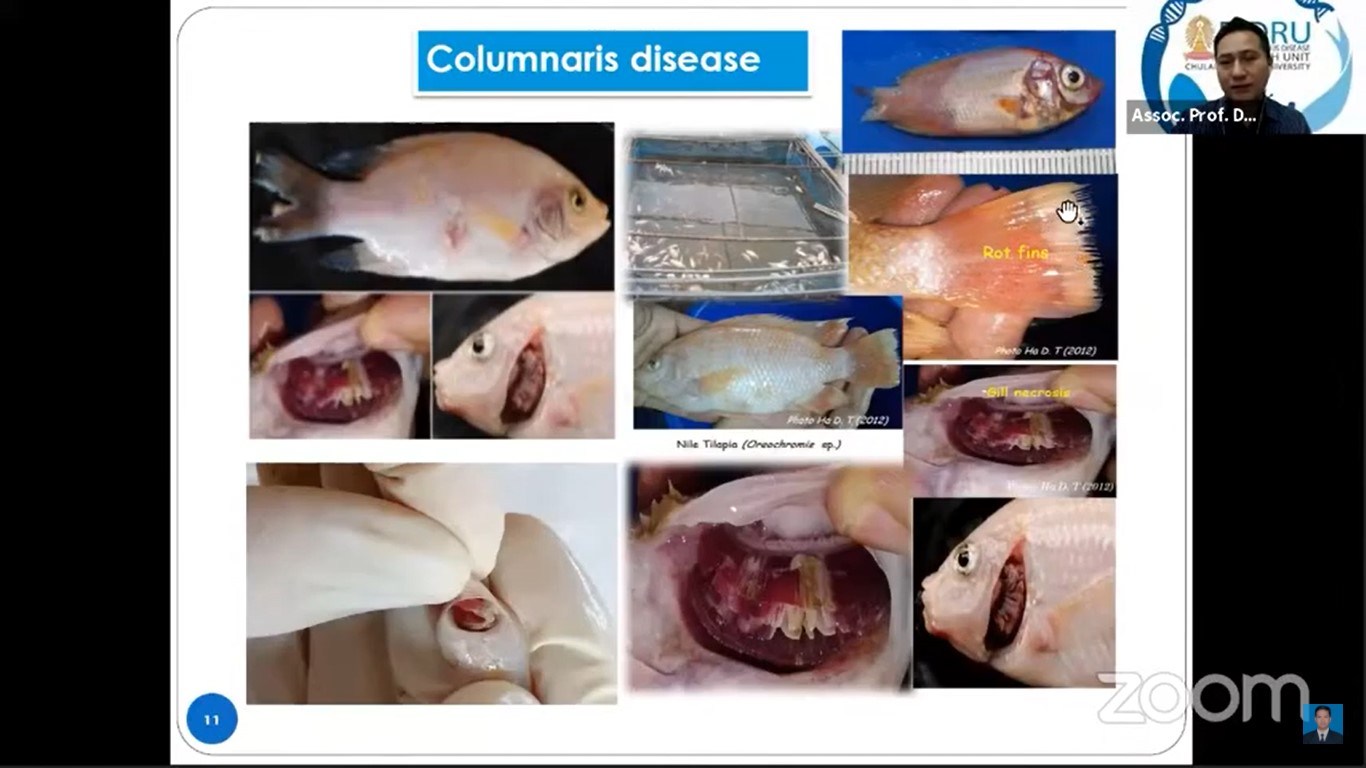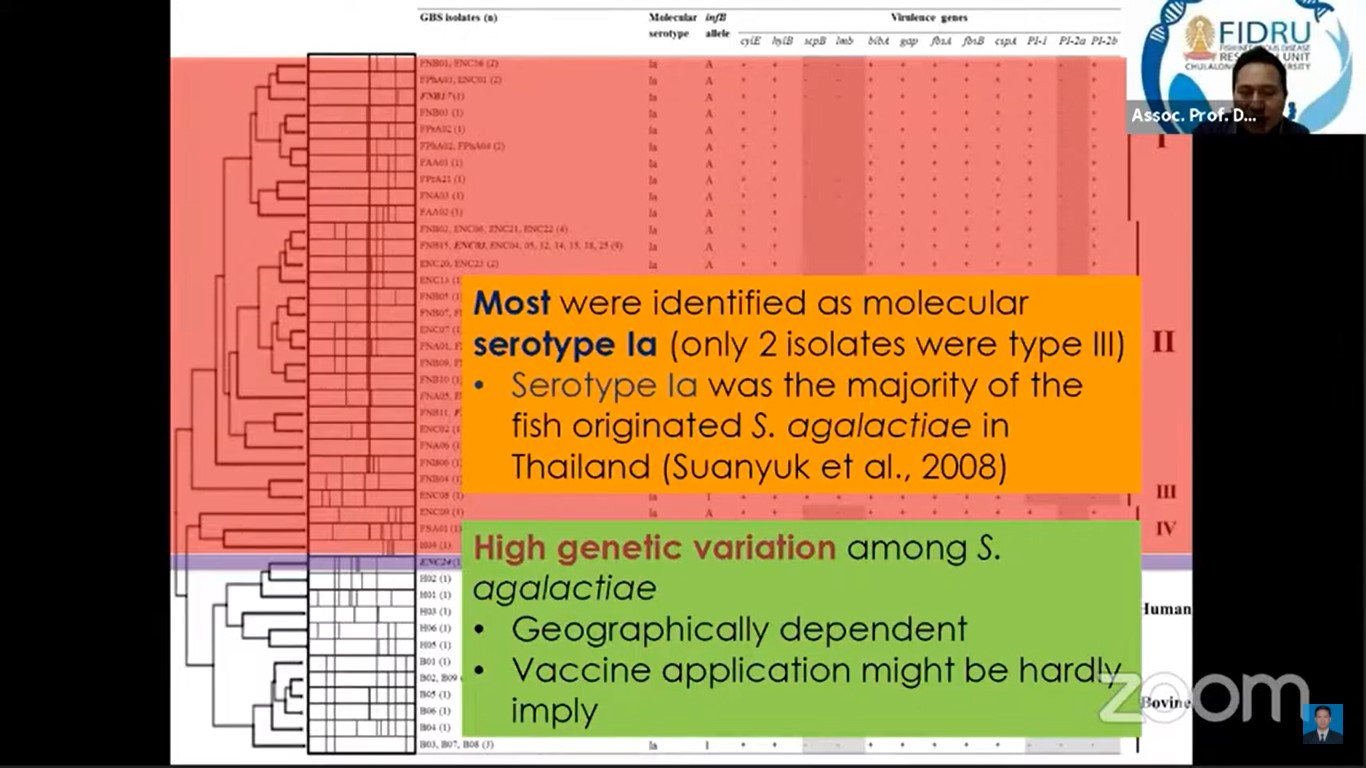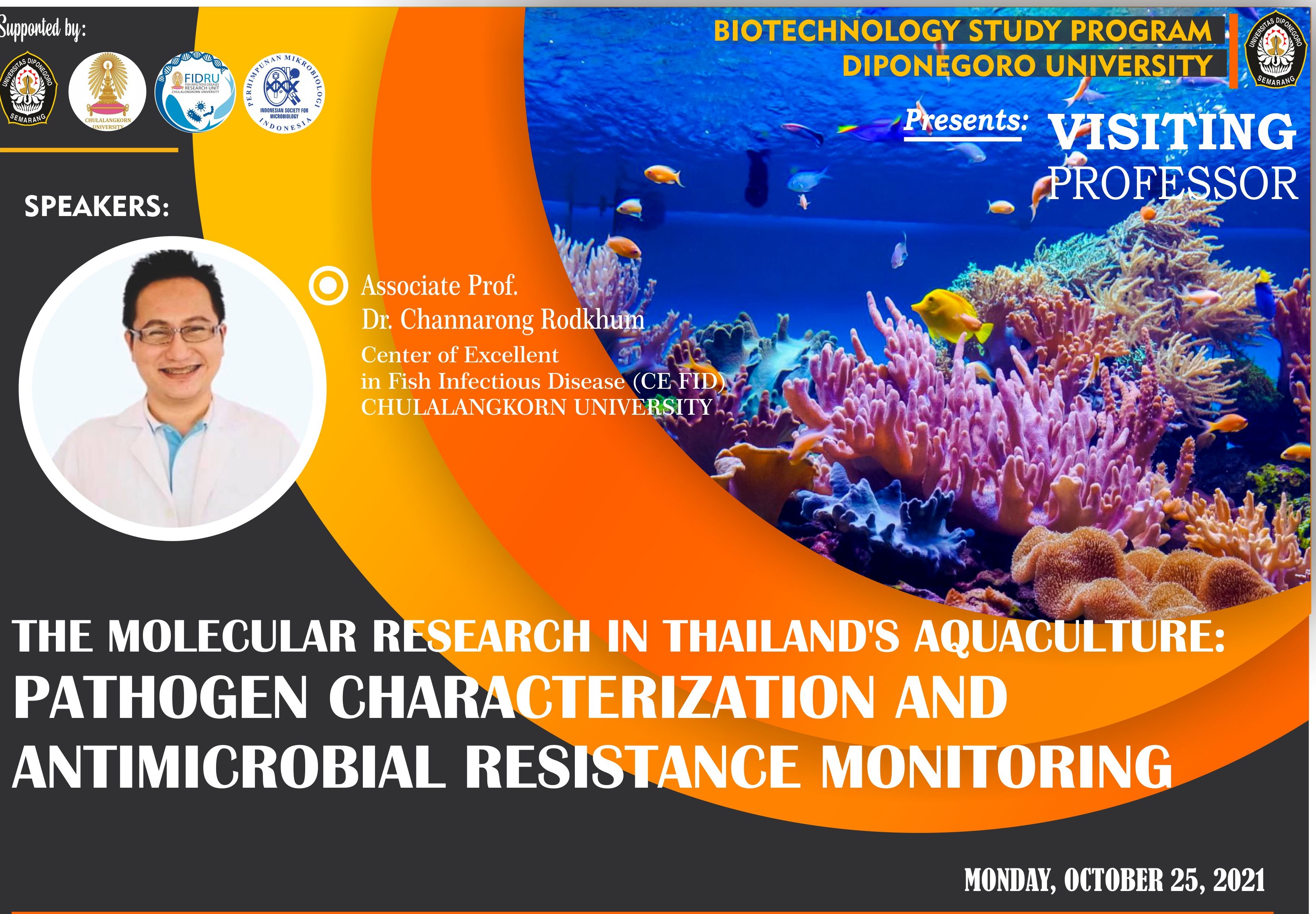Semarang – Diponegoro University’s Biotechnology Study Program on Wednesday, October 25, 2021 held a Visiting Professor event with the title “The Molecular Research in Thailand’s Aquaculture: Pathogen Characterization and Antimicrobial Resistance Monitoring”. This topic was presented directly by Dr. Channarong Rodkhum who is a researcher and lecturer from the Center of Excellent in Fish Infectious Diseases (CE FID), Department of Veterinary Microbiology, Faculty of Veterinary Science, Chulalongkorn University, Thailand.

Dr. Channarong Rodkhum explained that the high fish consumption over the world and continues to grow over time requires serious attention in maintaining the availability dan sustainibility of fish in many aspects, especially productivity. For instance, Tilapia fish consumption is the most consumed fish with a production of 4.5 million tons per year. Success and sustainability in the field of fisheries stems from the success of fish health management such as monitoring water quality, providing supplements and administering vaccines for important diseases. Some important diseases in Tilapia fish such as Streptococcosis, Columnaris, Haemorrhagic septicemia, Franciscellosis, Tilapinevirus infection and parasitic infections.

He continued that Streptococcosis infection in Tilapia has a serious impact on fish health. This disease that attacks the fish’s nervous system makes it difficult for fish to work on their bodies which result in decreased productivity in the long term. Another example is Columnaris which attacks the gills and skin which makes it difficult for fish to take oxygen from the environment which in the long term can reduce fish productivity and result in death.

Dr. Channarong Rodkhum in his research carried out measurable monitoring to control pathogens in fish through molecular-based research carried out with the stages of disease investigation, sample collection, isolation and identification of pathogens using advanced molecular techniques. Pathogen infection mapping was carried out using the DNA marker 16S-RFLP to monitor the extent to which the pathogen was spread.
This event was moderated directly by Dr. rer. nat. Anto Budiharjo, M.Biotech, who is a lecturer in Biotechnology at Diponegoro University. This event lasted for 2 hours and was enthusiastically attended by more than 200 participants from various institutions until the end of the event.

